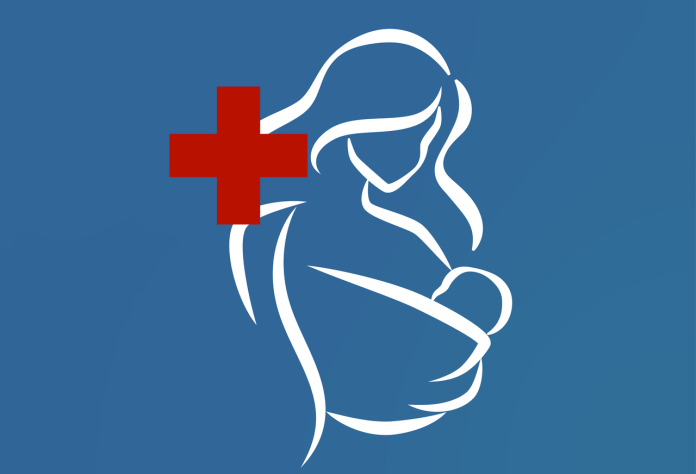The World Health Organization (WHO) has called on Nigeria to scale up efforts to address systemic fragmentation of healthcare interventions to accelerate maternal health progress.
Dr Walter Kazadi Mulombo, WHO’s representative in Nigeria, made the call on Thursday in Abuja at the 2024 Maternal Health Policy Dialogue.
The event had the theme: “Scaling Maternal Health Innovations in Nigeria”.
It was organised by Nigeria Health Watch.
The News Agency of Nigeria (NAN) reports that maternal mortality remains a critical issue in Nigeria, which ranks second globally in maternal deaths, according to 2023 WHO Report.
The statistic underscores the gap between Nigeria’s current health outcomes and the Sustainable Development Goals (SDG) target of fewer than 70 maternal deaths per 100,000 live births.
Systemic barriers such as poor access to healthcare services, financial constraints, and inadequate transportation infrastructure contribute to delays in seeking maternal healthcare services, exacerbating the crisis.
However, innovative approaches in digital health, telehealth, and evidence-based interventions such as E-MOTIVE, a postpartum haemorrhage management bundle, offer promising solutions.
Mulombo said that one of the fundamental challenges is fragmentation of healthcare interventions across various departments and sectors.
“Addressing these gaps, particularly in family planning services, exclusive breastfeeding and treatment for childhood illnesses, is critical.
“Enhancing coordination and ensuring universal coverage for these interventions are essential steps towards achieving the SDG targets in Nigeria,” he said.
He highlighted the need for aggressive and deliberate actions and strong governance.
“Nigeria’s commitment to reducing maternal, newborn and child mortality aligns strongly with WHO’s World Health Assembly (WHA) resolution aimed at accelerating progress towards health-related SDGs, particularly SDG 3.
“The resolution focuses on ensuring healthy lives and promoting well-being for all at all ages,” he said.
According to him, Since the adoption of the SDGs in 2015, Nigeria has shown consistent commitment to improving maternal and child health outcomes.
“Key targets in the WHA resolution include reducing the maternal mortality ratio to below 70 per 100,000 live births by 2030 and significantly reducing child mortality rates.
“These targets are crucial benchmarks for assessing progress and guiding national health strategies,” he said.
He said that Nigeria’s proactive stance in sponsoring the resolution underscored its dedication to advocating innovative approaches and effective implementation of national health plans.
The WHO representative called for a shift toward comprehensive solutions over pilot studies to drive significant improvements in health outcomes.
He highlighted the importance of investing in primary healthcare and addressing healthcare workforce shortages to build resilient health systems capable of providing quality care for all.
“Strategic initiatives such as the Nigeria Health-Sector Renewal Investment Initiative are crucial components of Nigeria’s strategy to improve primary healthcare.
“By promoting a primary care-centric model and enhancing governance, Nigeria aims to effectively reduce preventable maternal and child deaths,” he said.
According to him, special attention is needed for healthcare systems in fragile and conflict-affected regions, such as north East Nigeria.
“Strategies to overcome barriers in these areas include establishing a robust healthcare network with strong referral mechanisms and supporting pre-hospital services, laboratories and blood banks.
“These efforts are essential to ensure that all regions, including those experiencing humanitarian crises, receive adequate healthcare support.
“With Nigeria’s visible efforts to implement the WHA resolution, the emphasis is now on turning discussions into concrete actions to achieve the SDG targets by 2030,” he said.
He stressed that maternal health impacted everyone and that preventing maternal deaths remained a collective responsibility.
Prof. Hadiza Galadanci, Director of the Africa Centre of Excellence for Population Health and Policy at Bayero University, Kano, called for early detection and treatment of postpartum haemorrhage.
According to Galadanci, early detection and treatment of postpartum haemorrhage using the WHO MOTIVE First Response Bundle is key to preventing women from dying from excessive bleeding.
” In 2020, an estimated 287,000 women globally died from maternal causes, amounting to almost 800 maternal deaths daily.
“Globally, haemorrhage accounts for more than 25 per cent of maternal mortality,” she said.
She explained that postpartum haemorrhage remained the leading cause of maternal deaths in Nigeria due to delay in care.
She stressed the need to move from identifying problems to implementing solutions.
Dr Binyerem Ukaire, Director of Family Health at the Coordinating Ministry of Health and Social Welfare, said that the ministry was implementing the E-MOTIVE strategy as part of the Safe Motherhood Project.
“For these strategies and policies to be effective, Nigerians must unite to drive the initiatives that mitigate maternal mortality,” she said.
Mrs Fatima Muhammad, Consultant for Nutrition and the Adolescent Health Project at the Society for Family Health, highlighted the effectiveness of the E-MOTIVE approach.
However, she said there was need to ensure its adaptability in rural communities and sustainability at primary healthcare centres before nationwide implementation.
Dr Habib Sadauki, former President of the Society of Gynaecology and Obstetrics of Nigeria, highlighted cultural challenges as a significant threat to the successful implementation of the E-MOTIVE strategy.
Sadauki advocated grassroots education to change perceptions and behaviours, thereby improving hospital-based maternity care.
Mrs Vivianne Ihekweazu, Managing Director of Nigeria Health Watch, said that the dialogue demonstrated that scaling maternal health innovations and implementing effective policies and strategies were crucial for improving maternal health outcomes.
According to Ihekweazu, ensuring safe and equitable healthcare for every woman giving birth in Nigeria is essential.
She said that the dialogue brought together key stakeholders that discussed the benefits, challenges and strategies for implementing and scaling up maternal health innovations in the Nigerian healthcare system. (NAN)


